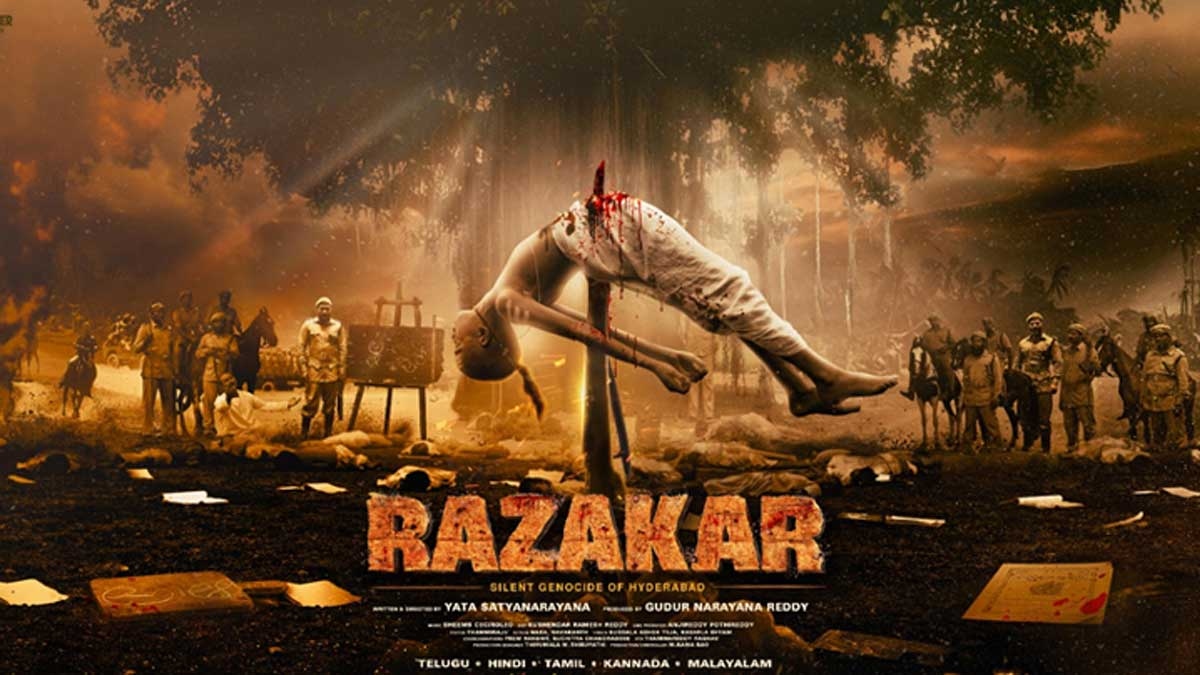
Razakar highlights the Hyderabad Liberation Movement of 1948. Capture the struggles of Andhra Pradesh and its people in the early days of Independence to reclaim their religion and identity in the face of military and political oppression. It is A narrative of the people who, prior to September 17, 1948, rose up in Hyderabad state, against the oppressive rule of the Nizam and the anarchy of the Razakars.
Story:
The partition of India by the British into India and Pakistan gave the princely states the choice to join either nation. While most states made their decision, Kashmir and Hyderabad opted for independence. Nizam of Hyderabad, aiming to make his state a Turkistan akin to Pakistan, signed a standstill agreement with India.
Driven by religious fanaticism, Nizam (Makarand Deshpande) planned to convert the majority Hindus to Muslims using his aide Khasim Rizwi (Raj Arjun) and his private army, the Razakars, within the one-year agreement period. This oppressive move sparked rebellion led by Raj Reddy (Bobby Simha), Shantavva (Vedhika), Pochavva (Anasuya), Chakali Ailamma (Indraja), and others.
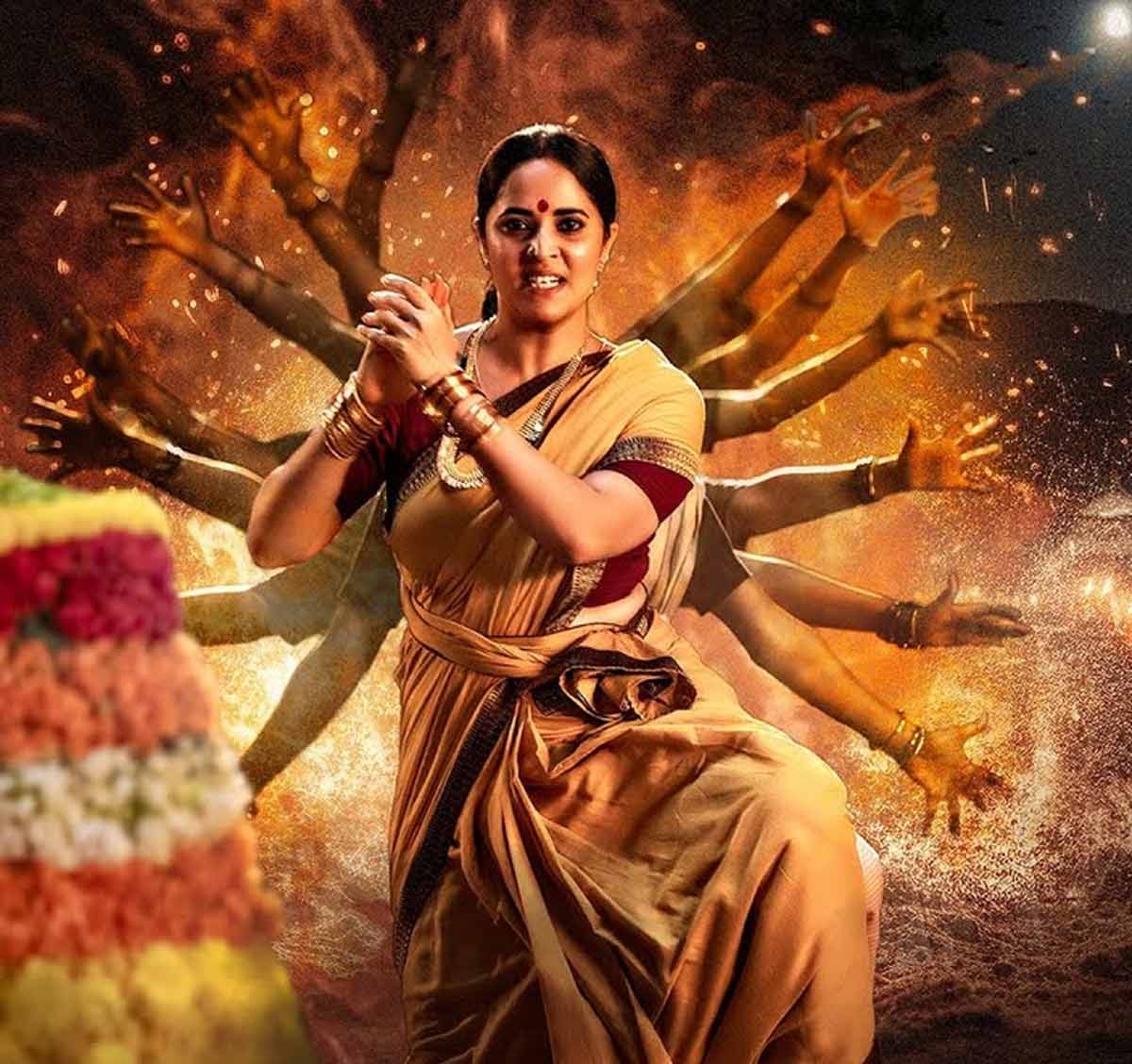
As the situation escalated, Union Home Minister Sardar Patel (Tej Sapru) dispatched KM Munshi (Thalaivasal Vijay) to Hyderabad to assess the situation firsthand. However, PM Nehru's reluctance and Nizam's aggressive plans for acquiring weapons from Germany and Pakistan added complexities.
The story unfolds to reveal whether Sardar Patel will take decisive action amidst Nehru's hesitation and Nizam's aggression, leading to a significant historical turn of events.
Analysis:
Raj Arjun delivered a chilling portrayal of Khasim Rizwi, exuding a terrifying presence on screen. His expressions, dialogue delivery, and body language embodied that of a ruthless and bloodthirsty character, leaving a lasting impact. Tej Sapru's portrayal of Union Home Minister Sardar Patel was commendable, characterized by strong body language and a fitting personality. Thalaivasal Vijay convincingly portrayed KM Munshi, adding depth to his character.
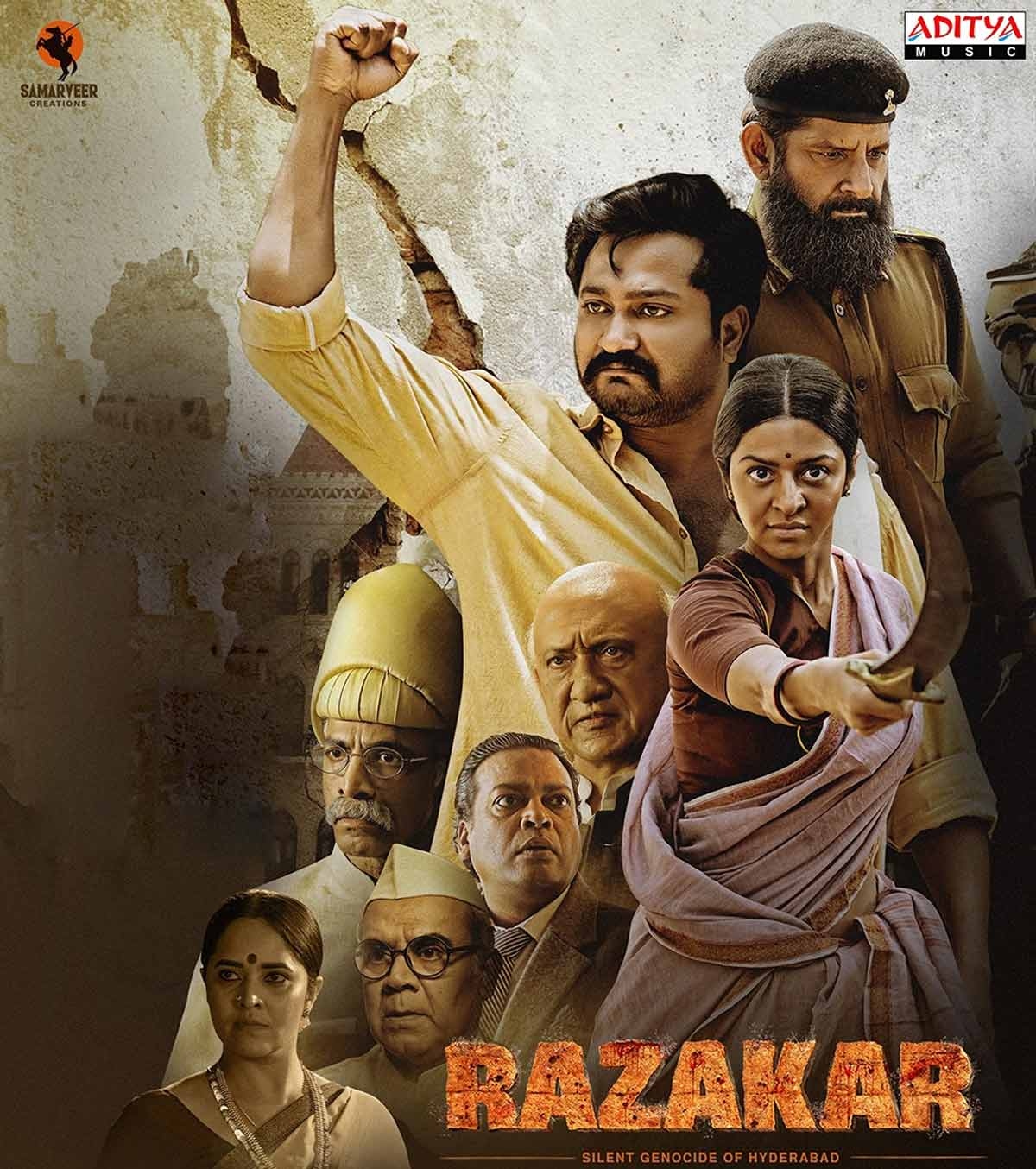
Anasuya, Indraja, and Vedhika, playing Pochavva, Chakali Ailamma, and Shantavva respectively, delivered exceptional performances. Their roles were impactful, commanding the screen with their presence and delivering dialogues that sent shivers down the viewers' spines. Bobby Simha's entry in the second half was impactful, adding further intensity to the narrative. The rest of the cast contributed significantly to the narrative with their fiery dialogues, breathing life into the story.
Director Yata Satyanarayana embarked on a mission to expose the atrocities and genocide committed by the Khasim Rizwi army under Nizam's rule, a dark chapter in Hyderabad's history that successive governments and parties chose to keep hidden for political gain. The story, being historical, was presented without reservation, showcasing the brutality of Rizwi and Nizam's regime on the big screen. From start to finish, the film highlighted the brutal genocide of Hindus under Nizam's rule, a key factor that led Union Home Minister Sardar Patel to defy PM Nehru and order Operation Polo to liberate Hyderabad state.
The screenplay was fast-paced, and the direction was precise, with powerful scenes that left a strong impact on the audience. The dialogues were intense and impactful, resonating with the viewers. The film featured many intense scenes and dialogues that evoked strong emotions from the audience. The first half focused on Nizam's atrocities, with a few individuals revolting, while the second half depicted a more widespread revolt with greater intensity, culminating in the events during Operation Polo.
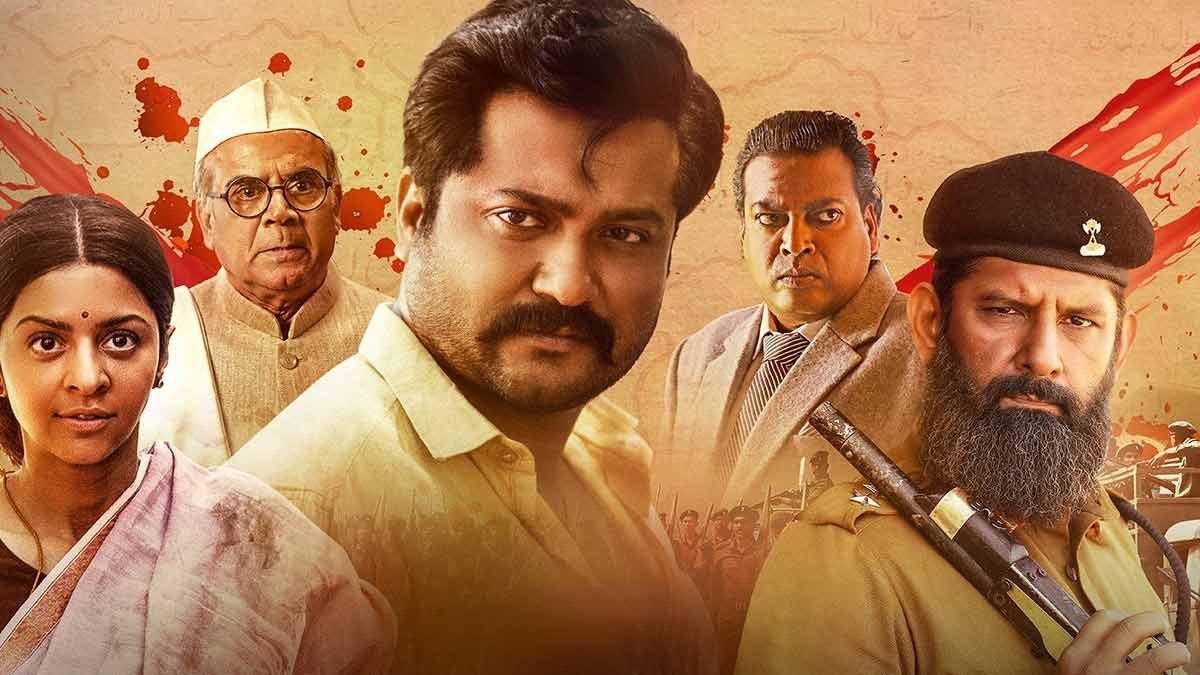
Tammiraju's editing was commendable, maintaining a smooth narrative flow despite occasional pacing issues. Kushender Ramesh Reddy's cinematography captured the historical events in a realistic and impactful manner, effectively conveying the emotions of the characters. Bheems Ceciroleo's songs were lively and situational, adding value to the narrative, while his background score enhanced the scenes, elevating the viewing experience. The film's production values were impressive, contributing to its overall impact.
Verdict:
Razakar, directed by Yata Satyanarayana, is a commendable and bold attempt to depict the brutal realities of the Nizam's rule. The director should be praised for daring to tell such a story, and the producers deserve credit for fully supporting this endeavor despite the potential for political controversy. Yata Satyanarayana skillfully extracted the best performances from the cast and crew, resulting in a powerful and impactful film
Rating: 2.75 / 5.0
Showcase your talent to millions!!
Telugu Movie Reviews
 Devaki Nandana Vasudeva
Devaki Nandana Vasudeva
 Zebra
Zebra
 Mechanic Rocky
Mechanic Rocky
 Matka
Matka
 Kanguva
Kanguva
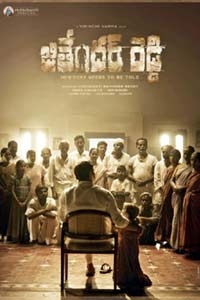 Jithender Reddy
Jithender Reddy




Comments